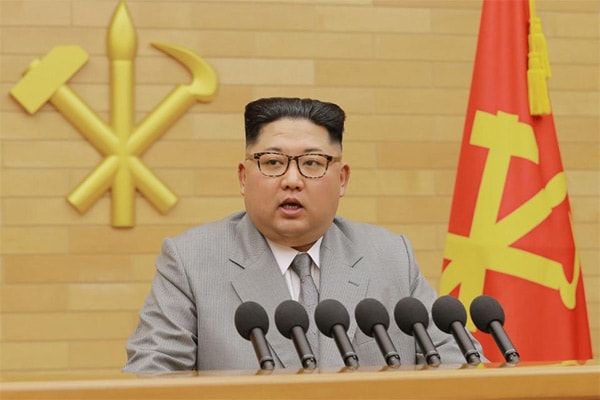Why does North Korea suddenly want to talk to South Korea?
North and South Korea are looking for ways to move toward dialogue after a year of dangerously escalating tensions.
In his New Year's speech, North Korean leader Kim Jong-un proposed that the two governments begin formal talks, including a desire to send a North Korean delegation to the Winter Olympics in South Korea in February.
|
| Mr. Kim Jong-un. Photo: KCNA |
On this issue, Forbes magazine quoted Charles Morrison, a senior scholar at the East-West Center think tank in Honolulu, as saying that Kim Jong Un wants North Korea toand South Korea meet on the condition that his country's issues are high on the agenda.
According to Yonhap news agency, for the past half year, South Korea has been waiting for an offer of inter-Korean dialogue on defense and cross-border family reunions. And, Seoul has always pursued the goal of gradual unification with the North.
"Unable to sway Washington or Tokyo, Seoul is the softer option at this time," Mr. Morrison said, referring to the hostility of the US and Japan to North Korea's military buildup.
Leif-Eric Easley, professor of international studies at Ewha University in Seoul, said Kim Jong Un may be feeling the pressure of economic sanctions. Sanctions approved by the UN Security Council in September, including bans on gas sales and textile purchases, are directly impacting North Korea’s $28.5 billion GDP.
According to Professor Easley, North Korea will demand "easing" of sanctions, investment in inter-Korean projects and a "dramatic" reduction in US-South Korea military exercises. Projects such as the Kaesong Industrial Complex, which closed in 2016, will bring many economic benefits to the North, helping to ease the pressure of sanctions.
But experts say South Korean President Moon Jae In will only make concessions if North Korea stops developing weapons.
“Building trust is good, dialogue is good, but it is not okay to give Pyongyang a free pass or to legitimize its missile and nuclear programs,” Professor Easley added.
"No measures should be considered unless North Korea stops weapons and missile testing, recommits to denuclearization in accordance with UN Security Council resolutions and previous multilateral agreements."
North Korea will likely continue to build intercontinental ballistic missiles capable of reaching the US, in addition to its hydrogen bomb program, especially if talks with South Korea prove fruitless. But if Kim Jong-un thinks there is something to be gained from negotiations, his government may slow down its weapons testing to please Seoul – which could lead to sanctions relief.
The final quarter of 2017 saw a lull after a series of missile tests in a year in which US President Donald Trump finally made his opposition to North Korea the core of his Asia policy.
"Seoul is interested in dialogue to reduce tensions, and is willing to explore other ways to ease tensions further," Mr Morrison said. South Korea will agree to cross-border meetings between families separated by the 1950 war, and a certain reduction in military exercises with the US. Seoul will also initiate humanitarian assistance.


